| Umělec 2000/3 >> Anybody Can Be an Artist (An interview with Ivan Vosecký) | Просмотр всех номеров | ||||||||||||
|
|||||||||||||
Anybody Can Be an Artist (An interview with Ivan Vosecký)Umělec 2000/301.03.2000 Vladan Šír | q&a | en cs |
|||||||||||||
|
Painter Ivan Vosecký first introduced himself last year and then again this year with two independent exhibitions at Veletržní Palác of the National Gallery and at the private MXM Gallery in Prague.
Your exhibition at Veletržní Palác included rather hostile statements. Why did you decide to phrase some of the inscriptions at the exhibition so forcefully: “Stay at Home,” “Try LSD” or “You’re All Stupid”? It corresponded to the place: a lot of people go there; it’s more like a public space, not completely a gallery. It felt like a train station. I wanted people, when they read the inscriptions, to start thinking about why they should be idiots, why they should do this and that. The strong tone was chosen so that they would react somehow (to the work). Communication—that’s what seems important to me. Even if it’s not the same type of communication as when I’m here speaking to you. How did you come to the conclusion that it’s not possible to make people communicate in some other way? Because that’s how I am. Classic art, paintings, sculptures do not interest me that much. I like it when I’m forced to react. More specifically, the exhibition at Veletržní Palác was created gradually. I didn’t have a clear idea beforehand. During the preparations some inscriptions were left out, because they didn’t work, and then others were gathered together at that moment. I was left with letters that weren’t used for anything, and an empty wall. A New Zealander was helping me; he was playing with the letters for a while, and he put together, “Lies Live in Me.” I thought it was great, and that was exactly it. He understood precisely what I was getting at. In the end, this conclusion perfectly underscored the exhibition. When did you start using writing alone; had you been doing it before? I saw it in the work of Jenny Holzer, but I always used it with photographs. The text communicates with you as if I were speaking to you—a direct dialogue. With images or colors you are communicating abstractly; they’re more like feelings. Pictures are impersonal; you can say something, but you won’t be able to say I’m this and this, or I think this and that. The viewer can interpret the picture anyway he wants. On the other hand, words are like my interview with you. That’s how I got to asking questions in my latest pictures. Questions are even more personal than attacks or direct speech. They said: “Do You Think the Church Should Apologize for Its Crimes?” or “Is Discrimination of THC Legal?” I put them in trams. How do you choose or select the texts that end up directly in a picture? It has a lot to do with what I sense, how the picture effects me, or it comes to me suddenly. For instance, I wrote on one: “Is Art Politics?” On another: “Is God Love?” I thought a lot about this one, contemplated it from various angles, if I should write it there or not. It’s like writing a diary. These sentences could be a diary. The text that I end up writing even has esthetic value; it’s as much a part of the picture as the color is. Is art politics? Yes, probably. But these are questions. I didn’t write: “Art Is Politics.” I wrote: “Is art politics?” I didn’t know the answers at that given moment to some of the questions. One day I thought, “Yes, art is politics.” When I thought about it a little more, I said, “No, art isn’t politics.” Do you get any reactions to your questions? Does it get any kind of feedback? I usually talk about it with my friends, wife, children. I wanted to place all these questions on the Internet. People could send their answers to an e-mail address, but I haven’t been able to set it up yet. I would be quite glad if people answered these questions, or talked to me about them. How do you choose topics like THC or the Church? I think about these things. These are concentrated philosophical claims, claims that I’m dealing with. The world, reality, God, love and things like that. Weren’t you afraid of getting into these subjects? Some may consider this to be moralistic… Well, I’m making an appeal. Why should I be ashamed of it? I’m doing what I can, or what I know how to do. Naturally, you have to choose the style of expression. You don’t want it to be this or that, so that you won’t end up looking as if you’re trying to be incredibly smart or mystical. Certainly, today, I wouldn’t write all of this. I think a lot about each inscription; it takes a long time before one’s created. Through a combination you broaden the possibilities. If you write only one inscription it’s like a given fact. If you write two you can question the first, and the third one pushes it still further. It should sound like poetry; they are poems. Do you yourself believe in God? Well, I believe in God, actually I do. I’m not going to make myself uncertain. I think that I do. I think the best definition of God I’ve heard is, “God is I am.” Realizing your own existence is God. That’s enough and you don’t need any additives such as beauty, love, nobility or shape. Just the realization itself is enough. It inspired me when I heard it ,and I’m trying to live by it in some ways, experience it. It’s not going very well, but I know that I feel as if I had discovered this definition. I know what it means. Why do you think you’re not succeeding at it? What do you use to judge the criteria, if God is I am? Because I keep thinking of myself, for whatever reason, as a separate entity. Sometimes I do things that I know are not right, even though this is relative. When I’m angry or in bad moods, I’m not able to accept that it’s all right that I feel like I’m being hurt. That’s the main problem. It’s bad when you let yourself get swallowed up by the world and you’re all ground up and can’t see yourself from a distance. I was in Šejn’s studio. I came to understand there that art should be your whole life, that you should live art. It doesn’t matter whether you’re painting good or bad paintings. I think that that’s your position in the world. Every movement or breath is art. When you scream at your kids because of school, when you go to the toilet. Why did advertising cause the Ozone hole? It didn’t cause it; it’s still causing it. Because it draws you into luxury. You could say that it’s absolute concentrated evil. You smoke cigarettes, which you don’t have to; you drive a car when you don’t have to. You buy chocolate, which isn’t essential for your survival. You drink Coke, when you can drink natural stream water, and other such nonsense. You destroy the planet with it and that’s the sin. You’re killing life. Isn’t it related to the fact that there are a lot of people, and that there are very developed technologies? If you add up all the people, and look at what technology allows them to do, naturally they are going to produce more waste and destroy more things than they would have perhaps two hundred years ago. I thought about it. Everyone thinks that ecological catastrophe is something that won’t happen. It’s still fine; we can still manage it. Christianity and European culture has spread this positive view of the world: the more the better. Let’s live life to the fullest; let’s enjoy it. That’s the Ozone hole. Isn’t it quite natural that we have come to this stage, and isn’t it normal that it’ll only get worse? This idea terrifies me. People are fools; they’ll start improving themselves with bio-technically. They are going to improve their brains and bodies. That’s the robotization of humankind. Maybe it could be all right; some higher intelligence could be created. It is hard to convince some people of this, when advertising constantly strokes your ego. Recently, I noticed how much advertising has changed in this country. Ten years ago advertising still more or less described the product; it focused on its sale. Today, however, you open Sunday’s Blesk and there you find a statement written across three-quarters of the page saying: “Do something good for your ego.” This advertising is done by Americans. It’s pre-calculated and professionally done. It’s stroking the ego through objects. I was walking barefoot across this path, and I realized that the Earth is a living organism. People don't think of the Earth as a living thing. They don’t think of trees as living things. People think of themselves as something extra; they are becoming more and more separated from nature. Soon people will be able to manufacture themselves. We will be able to program ourselves. But I’m not sure who’ll be in charge of all this. What do you mean by this? Do you mean someone will be controlling all of this? Do you think this can happen? I don’t know if it’s possible, but everything is leading to it. If you consider how groups, states were formed. Science and technology will make it possible for the whole world to interconnect. I’ve never thought this through to the end; I don’t know what all of this will cause. What will the result be of people’s intelligence having developed that much? Is intelligence a good thing? Then you’d have to say that the best state of consciousness is a plant, because then you’re not hurting anyone. We were talking about God a while ago, how did the sentence “Jesus Made KFC” get into one of your pictures? That drew everything perfectly together, what we have been talking about. I must admit that I didn’t come up with the slogan myself. I read it on a wall; someone had sprayed it there. I really liked it. It doesn’t matter whether someone else or I came up with it. Why aren’t people interested in art? For instance a graffiti artist? Young people, for example, are interested in it. If I were a young graffiti artist, I probably wouldn’t go to galleries so often. Maybe, but I probably wouldn’t go to exhibitions of paintings. Why did you start making art? That was more interplay of coincidences and circumstances. I think I liked it from a distance. When I was small, I didn’t know that artists existed, that it was something like an occupation, that someone could make a living by painting pictures. Why did I start creating art? Well, because I went to college. I don’t know; it’s hard to say. I thought it was good entertainment, but I didn’t take it seriously. Perhaps I was subconsciously longing to do it. What do you think about ambition? I’m always discussing this with colleagues—straining with ambition. It’s crap, but without ambition… My problems are my ambitions, I have the ambition of becoming a famous artist. It’s like it exists to satisfy the ego. Perhaps I wanted to be an artist because I wanted to be unique in someway, or famous. At the moment it isn’t a priority for me. If I were to say now that I wanted to be an artist, because I wanted to be famous, then it wouldn’t be true. Then is ambition something bad? Sometimes yes, sometimes I feel it inside me—an attempt to set myself apart from others. I get this from sports. Some people try to run faster than others, or jump further than others. Ambition is when you start using a clever method for jumping further into the distance, or for being a better artist, more famous, to sell more paintings. Or you could also try to tell people something. I’m trying to communicate something now; otherwise I’d get over it fast. I guess this has something to do with what you once told me: you consider to be good the things you can believe in, from that which you get a sense of sincerity. Tamara [his wife] is always telling me that I’m too sincere, that such sincerity does not interest some people at all. That you bare yourself to people, open up to them. I don’t like it either when it slides into some kind of exhibitionism. Why did put yourself on the invitation to your exhibition at Veletržní Palác? It’s like I’m the object of the art. It’s interesting to be, yourself, an artwork, your life. Your life can be a work of art. If you express it poetically. Can anyone be an artist? I think so. If you realize this, then yes. You can be an artist, when you are at home and carving out some great stuff. But that’s a different kind of artist. I’m afraid that you are an artist if you’re doing public shows, and if you’re confronting the public in someway. Today I was contemplating whether I would be an artist if I couldn’t have any exhibitions. I probably wouldn’t paint any pictures if I couldn’t show them somewhere. It’s also fun, but I’d probably start working hard and making money. For now this is my work.
01.03.2000
Рекомендуемые статьи
|
|||||||||||||
|
04.02.2020 10:17
Letošní 50. ročník Art Basel přilákal celkem 93 000 návštěvníků a sběratelů z 80 zemí světa. 290 prémiových galerií představilo umělecká díla od počátku 20. století až po současnost. Hlavní sektor přehlídky, tradičně v prvním patře výstavního prostoru, představil 232 předních galerií z celého světa nabízející umění nejvyšší kvality. Veletrh ukázal vzestupný trend prodeje prostřednictvím galerií jak soukromým sbírkám, tak i institucím. Kromě hlavního veletrhu stály za návštěvu i ty přidružené: Volta, Liste a Photo Basel, k tomu doprovodné programy a výstavy v místních institucích, které kvalitou daleko přesahují hranice města tj. Kunsthalle Basel, Kunstmuseum, Tinguely muzeum nebo Fondation Beyeler.
|







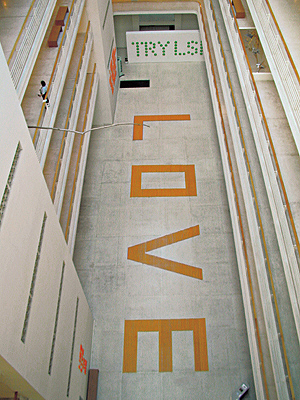
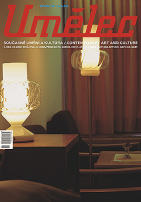






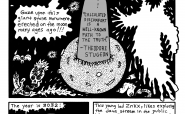
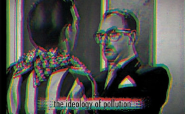
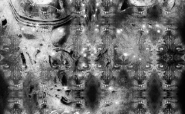
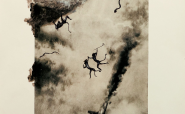
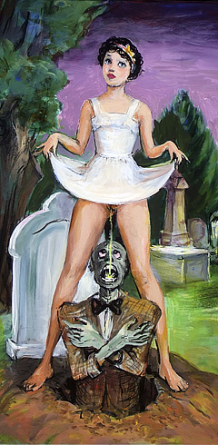












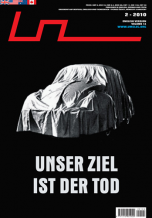
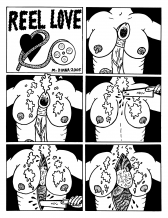
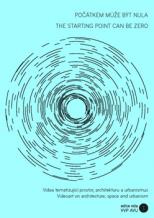


 New book by I.M.Jirous in English at our online bookshop.
New book by I.M.Jirous in English at our online bookshop.
Комментарии
Статья не была прокомментированаДобавить новый комментарий